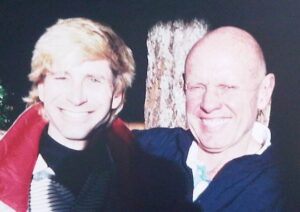Stephen R. Covey, Herald of Good Habits, Dies at 79
By DOUGLAS MARTIN
As appeared in The New York Times, Tuesday, July 17, 2012
 Stephen R. Covey, who won a global following and a five-year run on best-seller lists by fusing the genres of self-help and business literature in his 1989 book “The Seven Habits of Highly Effective People: Restoring the Character Ethic,” died on Monday at a hospital in Idaho Falls, Idaho. He was 79.
Stephen R. Covey, who won a global following and a five-year run on best-seller lists by fusing the genres of self-help and business literature in his 1989 book “The Seven Habits of Highly Effective People: Restoring the Character Ethic,” died on Monday at a hospital in Idaho Falls, Idaho. He was 79.
The cause was complications of a bicycle accident three months ago, his family said in a statement.
Mr. Covey’s book sold more than 25 million copies worldwide, and also became the first audiobook to sell more than a million copies. After conferring with Mr. Covey over Thanksgiving in 1994, President Bill Clinton said American productivity would greatly increase if people followed Mr. Covey’s advice. More than two-thirds of Fortune 500 companies flocked to use a consulting company he had founded.
Mr. Covey was a bit baffled by his success. He said he was simply telling people what he thought they already knew: the efficacy of good behavior. All that people had to do was form habits out of their best instincts, he said, calling his seven nuggets of knowledge natural laws, like gravity. They are:
1. Be proactive
2. Begin with the end in mind
3. Put first things first
4. Think “win-win.”
5. Seek first to understand, then to be understood
6. Synergize
7. Sharpen the saw; that is, undergo frequent self-renewal.
“We believe that organizational behavior is individual behavior collectivized,” Mr. Covey said. He expanded the lesson in 2004 in “The 8th Habit: From Effectiveness to Greatness,” in which he urges people to find their own distinctive voices and to encourage others to find theirs.
Among his other books, “Seven Habits for Highly Effective Families,” published in 1997, advocates that families come up with mission statements. “The Leader in Me,” published in 2008, embodies his ideas for educational reform. His goal was to change society, he said, calling his catechism first and foremost an action plan. “What is common sense isn’t common practice,” he declared.
Mr. Covey was a Mormon, and some saw large elements of Mormon theology in his work, though his language was ecumenical. He denied any Mormon bias in his books, saying he drew inspiration from the Scriptures and from history’s great thinkers.
In 1996, Time magazine named Mr. Covey one of the 25 most influential Americans, and Forbes called “Seven Habits” one of the top 10 business management books ever. As speaker of the House, Newt Gingrich drew on Mr. Covey’s advice and asked him to help write a chapter on personal strength in American culture for a student reading in a college course Mr. Gingrich taught.
“Seven Habits” became part of the vernacular. Campaigning in the Iowa Republican primary last year, Mitt Romney referred to the book in offering his “seven habits for highly successful economies.” Parodies have cropped up. One, published in 1996, was titled “The 7 Habits of Highly Defective People: And Other Bestsellers That Won’t Go Away.”
Stephen Richards Covey was born on Oct. 24, 1932, in Salt Lake City, and grew up on an egg farm outside the city. A promising athletic career was cut short by degeneration in his legs, causing him to use crutches for three years as a teenager.
In an interview with Fortune magazine in 1994, he told of his parents’ constant encouragement. “You’re going to do great on this test,” he remembered his mother saying as he went to sleep the night before a school exam. “You can do anything you want.”
He entered the University of Utah at 16 and earned a degree in business administration. He spent two years in Britain as a Mormon missionary before returning to the United States to earn an M.B.A. from Harvard Business School. He sometimes preached the Mormon doctrine on Boston Common.
After another missionary stint, in Ireland, he earned a doctorate in religious education from Brigham Young University. His thesis was on “success literature” in American history.
At Brigham Young, he became an assistant to the university’s president and began teaching his self-help ideas on campus, drawing as many as 1,000 students in a single class. In 1983 he gambled everything he owned on starting the Covey Leadership Center, a training and consulting concern in Provo, Utah.
In 1997 it merged with Franklin Quest, founded by Hyrum Smith, a time-management expert, to become the Franklin Covey Company. It now operates in more than 50 countries and had $160.8 million in sales last year.
Mr. Covey is survived by his wife, the former Sandra Merrill; nine children; and more than 50 grandchildren.
Mr. Covey hated to waste time. He made copies of documents and kept them in briefcases under his desk in case he lost an original. And he liked to do more than one thing at a time. Fortune reported that he was once seen at a gym lying on the floor of the shower room being sprayed by three shower heads while he brushed his teeth and shaved.
In explaining his second recommended habit — Begin with the end in mind — Mr. Covey urged people to consider how they would like to be remembered. “If you carefully consider what you want to be said of you in the funeral experience,” he said, “you will find your definition of success.”


0 Comments